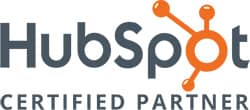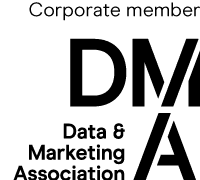As a HubSpot Partner and as an organisation that offers SDR services among other things, naturally we have a lot of conversations internally and with clients about CRM systems. You can see from my job title that for me it is my professional life and the rabbit hole I live in!
What is really interesting is how the term CRM seems difficult to translate, or it at least means something different to everybody. There are so many different, sometimes conflicting, views of what a CRM is for, but also why it is needed. Some companies just want somewhere to store customer and prospect data. Some of our clients have little to no visibility of sales and leads moving through the business. Others want to reduce the amount of different software they’re using and connect data sets from different departments into one ‘single source of truth’.
All of these are logical reasons to have a CRM. I’m obviously on the side of the fence that encourages organisations to look at this (I of course know a talented CRM Manager that can help you!), but you can have all the great ideas in the world and then cost and budget come up ☹
A CRM platform isn’t something tangible you can sell and directly see ROI, unless you’re in that industry. You can, for a time, survive without a CRM and still sell to and manage customers. If you then decide to get a CRM, you will naturally have some disruption when implementing it and adapting processes that will feel like you are losing time and therefore revenue. With all that in mind and the cost of running a business going up, why would you pull the trigger? If you make the investment and pay a monthly subscription, when and how do you see a return? Won’t it just be eating into profit and margin? How quickly can that investment start to wash its face at least, and show you financially that you made the right decision?
All of those are sensible questions I hear all the time. First off, I’d suggest an assessment of your entire tech stack. How many different pieces are software are each team using to just do their jobs? Can cost savings be made by not only replacing software with a function within a CRM system, but also having that software directly linked to vital data? I’d advise then thinking about your current operation i.e. how easily can you show and track the ROI from your marketing efforts, and how well are you tracking and staying on top of your leads and deals? How valuable is that data to you?
Then there’s the obvious point that, again, we at Air Marketing constantly talk about: Lead Gen! What if having the right CRM could help you generate more leads? What if a few more closed deals a month, from leads that came off the back of an increase that’s linked to having a solid CRM in place, provided you with profit that could then pay for that monthly CRM cost? In that scenario you aren’t having to find additional budget; you’re seeing an increase in your numbers and have slicker and more integrated processes. I’ve made it sound really simple but that’s got to be a no-brainer, right?
We’re a HubSpot Certified Solutions Partner and became so because we see how the platform adds value to the Sales and Marketing services that we offer. It will always be our first recommendation, because we believe in HubSpot and use it ourselves. There are, however, other great alternatives on the market, Salesforce being one of them.
Both HubSpot and Salesforce have reacted to the question “how can I see ROI from my investment in a CRM?” and have provided some excellent calculators. When shopping around for a CRM, we advise you do your normal due-diligence and investigate features and benefits, but we’d also advise going through the exercise of running some numbers through these tools so you can satisfy that part of your curiosity and/or explain to the powers that be, what returns will come from the cost of CRM implementation.
Try out these FREE calculators:
The alternative, of course, is to fill out a contact form here, and I’ll happily get on a call to help and offer our perspective 😉
Opinion piece by Shaun Weston – CRM Manager at Air Marketing







